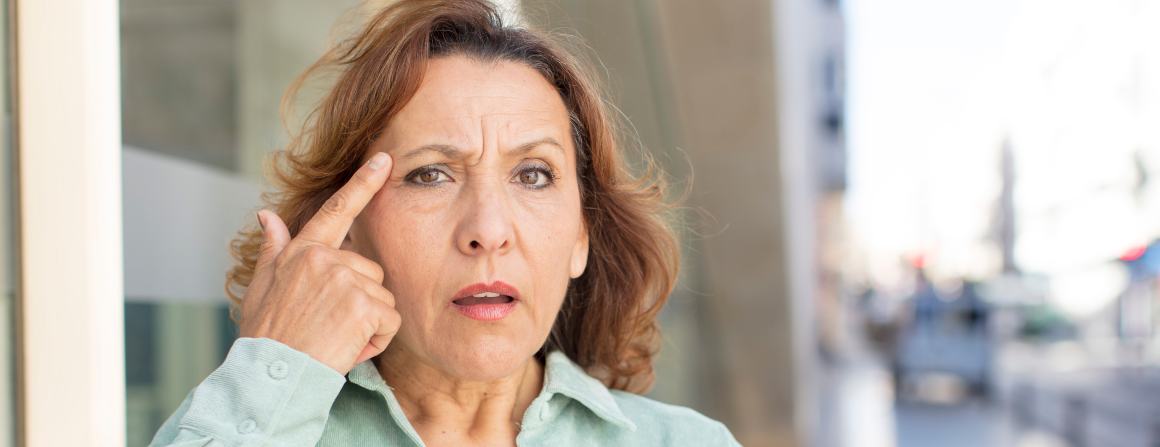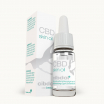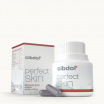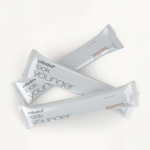What slows down aging?
Published:
Categories: CollagenAging is a natural process that all of us go through. As we get older, our bodies and minds change in many ways. While some aging signs like wrinkles and gray hair are visible on the outside, much of the aging process happens internally. Certain lifestyle factors can accelerate or slow down the rate of aging. The good news is there are steps you can take to slow down aging and maintain health and youthfulness as you get older.
Contents:
- Why Does Our Body Age?
- Evidence-Based Ways to Slow Aging
- Key Takeaways to Slow Aging
-
Frequently Asked Questions About Slowing Aging
- How much can I realistically slow down aging?
- What diet is best for longevity?
- How often should I exercise to slow aging?
- Is there anything I can do to maintain my looks as I age?
- Are there any supplements proven to slow aging?
- What mental activities help keep the brain young?
- How can I motivate myself to stick to longevity habits?
- Resources used to write this article
In this article, we’ll explore the science behind aging and provide 6 evidence-based ways to slow down the aging process, inside and out. With some simple lifestyle tweaks, you can keep your body and brain functioning optimally and look younger as you age.

Why Does Our Body Age?
Aging is a complex biological process that affects us on a cellular level. As we get older, our cells and tissues accumulate damage over time. This cellular damage eventually leads to the changes we associate with aging like wrinkles, weaker muscles, decreased energy, and increased risk for age-related diseases.
Some key factors that drive the aging process include:
- Shortening telomeres - Telomeres are protective caps on the ends of chromosomes that shorten each time a cell divides. Shorter telomeres have been linked to aging and disease.
- Cellular senescence - As cells age, they stop dividing and become dysfunctional, a state called senescence. Senescent cells build up in tissues and release inflammatory compounds that damage neighboring cells.
- Mitochondrial dysfunction - Mitochondria produce energy inside cells and their function declines with age. This leads to less efficient cells and more free radicals.
- Loss of proteostasis - The proteins inside cells become progressively damaged and misfolded, impairing cellular function.
- Epigenetic changes - Gene expression patterns change over time, including switches that control youthful characteristics.
- Accumulation of cellular waste - Autophagy, the cellular recycling process, becomes less efficient. Damaged components aren't cleared out effectively.
Understanding why our bodies age can help guide lifestyle strategies to slow aging. The rate of biological aging can be measured using biomarkers like telomere length. Slowing the pace of aging may increase healthspan - the years we spend in good health.
6 Evidence-Based Ways to Slow Aging
The exciting news is that we aren’t completely at the mercy of our genetics when it comes to aging. Research has uncovered methods that can slow aging and reduce age-related decline in health and appearance. Here are 6 lifestyle strategies to slow your biological clock:
1. Eat a Nutritious Diet
Eating a diet rich in fruits, vegetables, whole grains, healthy fats and lean proteins provides antioxidants, micronutrients and phytochemicals that reduce cellular damage. These compounds fight inflammation, remove harmful free radicals, support telomeres and keep cells functioning optimally. Getting the right nutrients can prolong longevity.
Specific anti-aging foods include fatty fish, avocado, olive oil, nuts, green tea, berries, sweet potatoes and cruciferous veggies. Try to limit sugar, refined carbs and processed foods. Intermittent fasting and calorie restriction may also have anti-aging effects by triggering cellular repair processes.
2. Exercise Regularly
Regular exercise slows aging in many ways. It reduces inflammation, lowers blood pressure, improves insulin sensitivity, boosts mitochondria, and stimulates removal of old, dysfunctional cells. Aerobic exercise and strength training can both lengthen telomeres and lead to a slower rate of telomere shortening.
Aim for 150 minutes per week of moderate exercise like brisk walking. Also incorporate resistance training 2-3 times per week. Yoga, tai chi and other mind-body practices reduce stress as well. Developing balance, flexibility and coordination becomes especially important as you get older.
3. Get Enough Sleep
Not getting sufficient sleep can accelerate aging and increase disease risk. During deep sleep, your cells and tissues undergo repair and regeneration. Chronic sleep deprivation disrupts these restorative processes and stresses the body.
Aim for 7-8 hours of quality sleep per night. Having good sleep hygiene, limiting blue light exposure at night, and managing stress can all help you sleep better as you get older. Naps may provide an added boost as well.
4. Manage Stress
Ongoing emotional stress takes a toll on the body, speeding up aging. Stress hormones like cortisol create oxidative stress, increase inflammation, impair immune function and even shorten telomeres. Managing stress through meditation, yoga, breathing practices, spending time outdoors and other relaxation techniques can reverse these effects.
Set aside time each day to intentionally rest and recharge through whatever activities help you decompress. Spend time connecting with loved ones and nurturing personal relationships as well. A positive mindset and social connections are linked to slower aging.
5. Quit Smoking and Limit Alcohol
Smoking severely accelerates aging through oxidative stress, inflammation, telomere shortening and DNA damage. It primes cells to enter senescence faster. Quitting smoking can halt these effects. Excessive alcohol consumption also ages cells and tissues prematurely.
If you currently smoke, make a plan to quit. If alcohol intake is high, aim to cut back to moderate levels. Your cells will thank you.
6. Protect Your Skin
Your skin bears the brunt of environmental aging factors like UV radiation and pollution. Sun exposure degrades collagen, causes DNA mutations and leads to wrinkles, age spots and skin cancer. Using broad spectrum sunscreen daily, seeking shade and wearing protective clothing helps defend against these effects.
Eating antioxidant-rich foods, using topical vitamin C and retinoids, staying hydrated and not smoking all support healthier, more youthful looking skin as well. Seeing a dermatologist can also help you create the most effective anti-aging skincare regimen.
Making lifestyle changes to slow aging takes commitment, but the impact it can have on your health and vitality make it worthwhile. Even small steps to eat healthier, move your body, reduce stress and get better sleep can start slowing your biological clock. Be patient with yourself and focus on progress, not perfection.
Key Takeaways to Slow Aging
- Aging occurs due to cellular damage over time that affects telomeres, mitochondria, proteins and other structures.
- Lifestyle choices significantly impact the rate of biological aging.
- Eating a nutritious diet full of anti-oxidant-rich plant foods can protect cells from damage.
- Regular exercise preserves telomeres, boosts mitochondria and stimulates cellular cleanup.
- Getting enough high-quality sleep allows cells to repair and rejuvenate.
- Managing emotional stress prevents inflammation and telomere shortening.
- Quitting smoking and limiting excess alcohol stop accelerated cell aging.
- Protecting your skin from sun damage prevents premature wrinkles and spots.
- Small, consistent changes to your daily habits can slow aging for a more vibrant, healthier life.
By supporting your cells from the inside out, you can slow down the aging clock and enjoy more years of looking and feeling your best. Make lifestyle choices that nourish your body, mind and spirit.
Frequently Asked Questions About Slowing Aging
How much can I realistically slow down aging?
It's difficult to quantify exactly how much you can slow aging, since biological age involves many factors. However, studies show people who adopt longevity lifestyle habits like eating well, exercising, not smoking, etc. often function healthily up to 10-15 years younger than their chronological age. Optimizing lifestyle can help you stay energetic and disease-free into old age.
What diet is best for longevity?
The best anti-aging diet is one that incorporates plenty of fruits, vegetables, whole grains, beans, nuts, seeds, and lean proteins like fish, poultry and low-fat dairy. These provide antioxidants, vitamins, minerals and healthy fats to protect cells. Limit sugar, refined carbs and processed foods. Intermittent fasting in moderation may also slow aging.
How often should I exercise to slow aging?
Aim for 150 minutes per week of moderate intensity aerobic activity like brisk walking or cycling, plus 2-3 strength training sessions. This helps maintain muscle mass so daily activities stay easier. Stretching/yoga are beneficial too. Spread exercise throughout the week for maximum benefits. Even short 10 minute sessions add up.
Is there anything I can do to maintain my looks as I age?
Using sunscreen, not smoking, managing stress, staying hydrated and getting beauty sleep all help maintain a more youthful appearance. Skin treatments like retinoids, vitamin C serums and peptides also stimulate collagen and reduce wrinkles. Seeing a dermatologist can help determine the most effective anti-aging skin care approach.
Are there any supplements proven to slow aging?
Supplements like resveratrol, nicotinamide mononucleotide (NMN), and nicotinamide riboside (NR) mimic effects of calorie restriction in research. CoQ10, vitamin D, omega-3s, probiotics and magnesium also support cellular health. However, whole foods should form the foundation, with selective supplements as added insurance. Check with a doctor before starting any new supplement.
What mental activities help keep the brain young?
Challenging your brain regularly combats cognitive decline. Learn new skills, read books, take alternate routes, do crossword puzzles, take courses – anything novel and complex builds cognitive reserve. Social connections and managing stress also protect the aging brain. Mnemonics and “use it or lose it” apply here.
How can I motivate myself to stick to longevity habits?
Focus on how good you’ll feel living actively and independently into older age. Set manageable goals you feel excited about. Track your progress. Have an accountability buddy. Join a fitness class to meet like-minded people. Small consistent changes driven by internal motivation lead to lifelong healthy habits.
The key takeaway is that small, daily lifestyle tweaks to eat right, move more, reduce stress, and get quality sleep can help preserve health and vitality. Committing to longevity habits helps you stay feeling and looking younger as you age.
Resources used to write this article
López-Otín, C., Blasco, M. A., Partridge, L., Serrano, M., & Kroemer, G. (2013). The hallmarks of aging. Cell, 153(6), 1194-1217. https://doi.org/10.1016/j.cell.2013.05.039
Zhang, Y., Kim, M. S., Jia, B., Yan, J., Zuniga-Hertz, J. P., Han, C., & Cai, D. (2017). Hypothalamic stem cells control ageing speed partly through exosomal miRNAs. Nature, 548(7665), 52-57. https://doi.org/10.1038/nature23282
Fulop, T., Witkowski, J. M., Bourgade, K., Khalil, A., Zerif, E., Larbi, A., ... & Lacombe, G. (2018). Can an infection hypothesis explain the beta amyloid hypothesis of Alzheimer's disease?. Frontiers in aging neuroscience, 10, 224. https://doi.org/10.3389/fnagi.2018.00224
Niccoli, T., & Partridge, L. (2012). Ageing as a risk factor for disease. Current biology, 22(17), R741-R752. https://doi.org/10.1016/j.cub.2012.07.024
Fahy, G. M., Brooke, R. T., Watson, J. P., Good, Z., Vasanawala, S. S., Maecker, H., ... & Harris, C. C. (2019). Reversal of epigenetic aging and immunosenescent trends in humans. Aging cell, 18(6), e13028. https://doi.org/10.1111/acel.13028
Wagner, K. H., Cameron-Smith, D., Wessner, B., & Franzke, B. (2016). Biomarkers of aging: From function to molecular biology. Nutrients, 8(6), 338. https://doi.org/10.3390/nu8060338
Joshi, S., Song, Y., Kim, H., Vierstra, R. D., & Lee, C. (2020). The ubiquitin-proteasome system in ageing and disease: paradigm lost or regained?. Nature Reviews Molecular Cell Biology, 1-18. https://doi.org/10.1038/s41580-020-0268-6
Lee, S., Schmitt, C. A., & Kim, S. J. (2020). The dynamic interplay between aging and cellular senescence. Current opinion in cell biology, 65, 127-134. https://doi.org/10.1016/j.ceb.2020.03.005
López-Otín, C., Galluzzi, L., Freije, J. M., Madeo, F., & Kroemer, G. (2016). Metabolic control of longevity. Cell, 166(4), 802-821. https://doi.org/10.1016/j.cell.2016.07.031
Rattan, S. I. (2014). Aging is not a disease: implications for intervention. Aging and disease, 5(3), 196. https://dx.doi.org/10.14336%2FAD.2014.0500196
Franceschi, C., Garagnani, P., Parini, P., Giuliani, C., & Santoro, A. (2018). Inflammaging: a new immune–metabolic viewpoint for age-related diseases. Nature Reviews Endocrinology, 14(10), 576-590. https://doi.org/10.1038/s41574-018-0059-4
Hood, S., & Amir, S. (2017). The aging clock: circadian rhythms and later life. The Journal of clinical investigation, 127(2), 437-446. https://doi.org/10.1172/JCI90328
Sahin, E., & DePinho, R. A. (2012). Axis of ageing: telomeres, p53 and mitochondria. Nature reviews Molecular cell biology, 13(6), 397-404. https://doi.org/10.1038/nrm3352
Sign up to our newsletter and enjoy 10% off one order
YOU MIGHT ALSO LIKE
Post related products
-

Look Younger CIBD0073
-

-



















